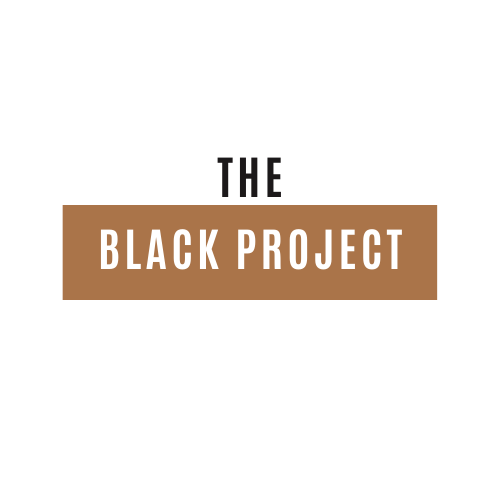Theatre Review: Alice in Wonderland, Brixton House
Last week, The Black Project was invited to the press night of Alice in Wonderland at Brixton House. Your usual content creator Brianna couldn’t make it, so we took the chance to offer some work experience to two young people, Faith Robinson Cox and Makare Dyer. They got to see the play in an official capacity, and then write their review. Read on to see what they thought.
The play was intimate, as the seating was very close to the stage and very compact. It was very modernised. There was only a certain amount of people, so when the actors where interacting with us it felt very real. The play imitated your journey on the train from Brixton - from the loud football fans after a game, to the elderly waiting for a free seat. It imitated the busy streets and the noises you would hear while strolling through Brixton. The actors were very funny with the way they interacted with each other and the audience, the jokes made sense and contrasted with the area and storyline really well. We we’re specifically impressed with how much work the actors put in, as they all played multiple characters. We also particularly liked the sound effects and the smoke that made the experience more real. If we were going to put the play in one category it would be impossible, because there was a bit of comedy siding with drama.
To summarise the plot, it was about learning that you’re not always right, things are a certain way for a reason, and rules are not to be messed with because they are there for a reason. The play was an emotional rollercoaster that we were on with Alice. It was Alice who was your average child from Brixton, she related to black children in Brixton, and represented us differently to how the media represents us. Each character represented experiences on a train journey from Brixton. At the end of the play all the characters had to get out of their comfort zone, they had to get used to teamwork and forgiveness. The Queen had to learn how to ask for help and that it’s okay not to be okay. She could be perceived as rude, but we learned she had a sweet interior, and Alice had to break down her walls.
An actor that stood out to us the most was Alice, she was on an emotional rollercoaster where she had to show resilience. She had to keep trying to achieve where she wanted to go. She had to learn to work in a team, and so did dumb and dumber - they had to learn to work together for the perfect impact on their future, to help them get to the place they needed to be. And the biggest life lesson there was teamwork. You thrive better in a team.
Another actor that stood out was the Queen as she taught the lesson of accepting that you’re allowed to ask for help. Help is not embarrassing to ask for or embarrassing to receive especially when it’s needed. Help will only push you and benefit you in your future. The queen represented empowerment. The play was passionate, the emotion in the actors words and face sold the story. The amount of emotion contrasting to the player’s personality made the audience feel it and connect on an emotional level.
The lighting matched the mood, the setting and the characters tones. The setting was unique too - the way the audience were placed, it was like we all had a role to play, whether that was rapping/singing along, clapping along, even laughing with the actors. The light effects were unique and different and helped with emotion. The sound effects sold the story, they fit in with the right emotion. The light engaged the audience and made the visual experience more real.
I loved the play, it really made me laugh, and I felt euphoric. The play made me look at Alice in Wonderland from a different perspective. I expected the normal Alice in Wonderland just in theatres and not as a movie, however when we got to Brixton house and I saw the setting in which the play was taking place, it was mysterious. The setting was different, the idea of a train and the ups and downs in a mother and daughter relationship. We really enjoyed the play, it made us laugh and connect with the actors. We give it 10/10 and couldn’t predict what was going to happen.
The Black Project would like to thank Diana Whitehead at Fourth Wall PR and Milk Honey Bees for supporting this work experience opportunity.


